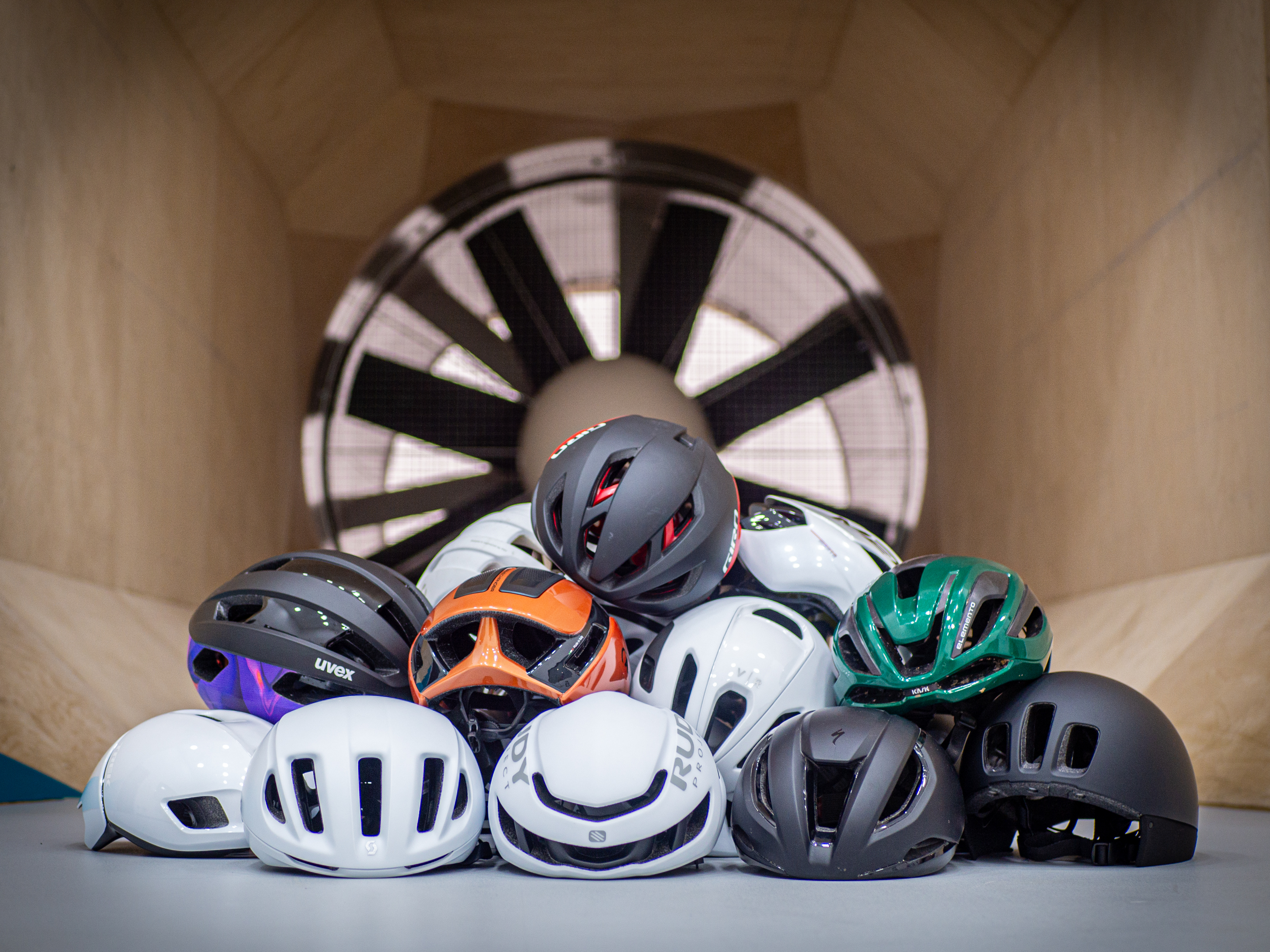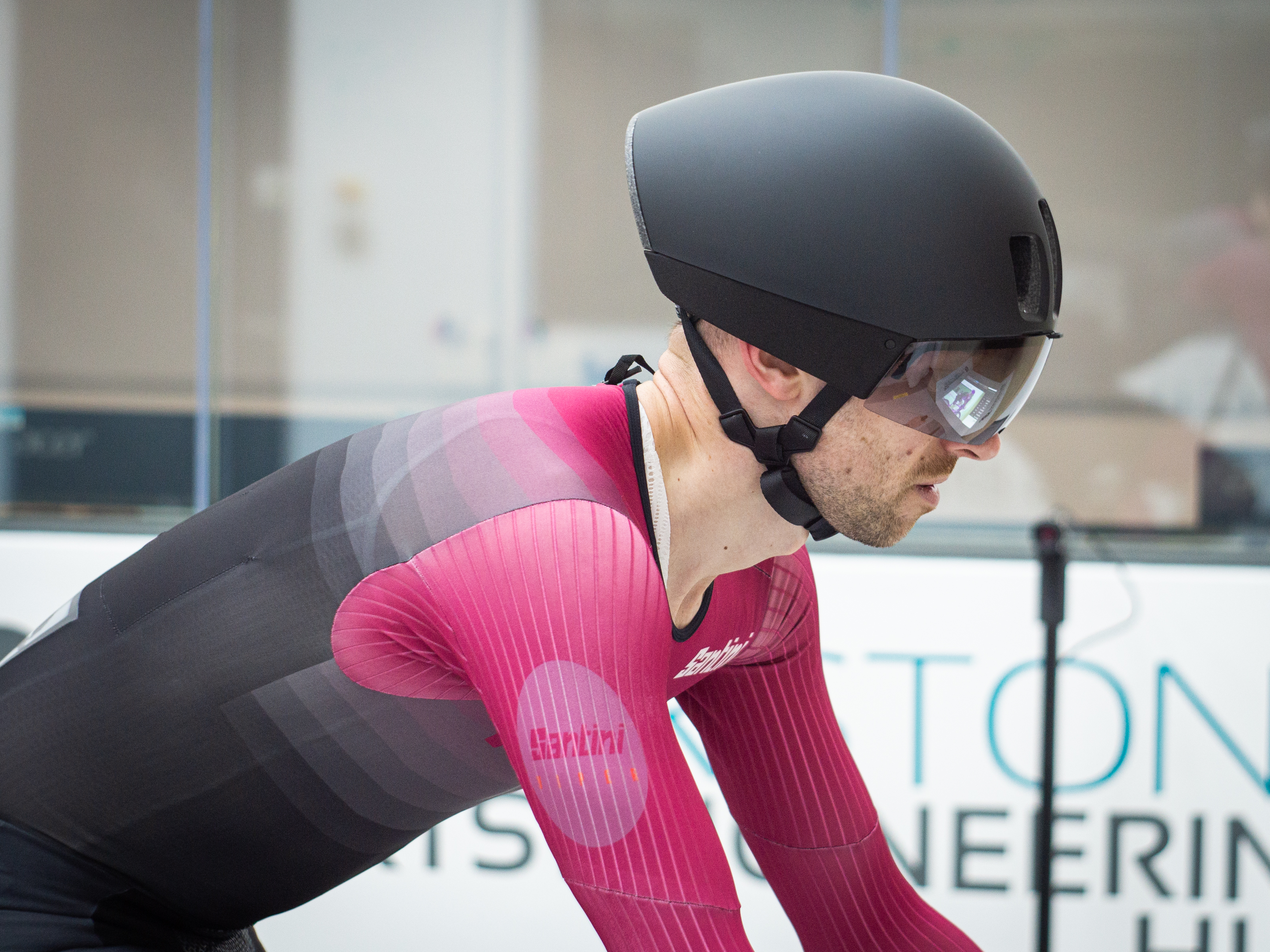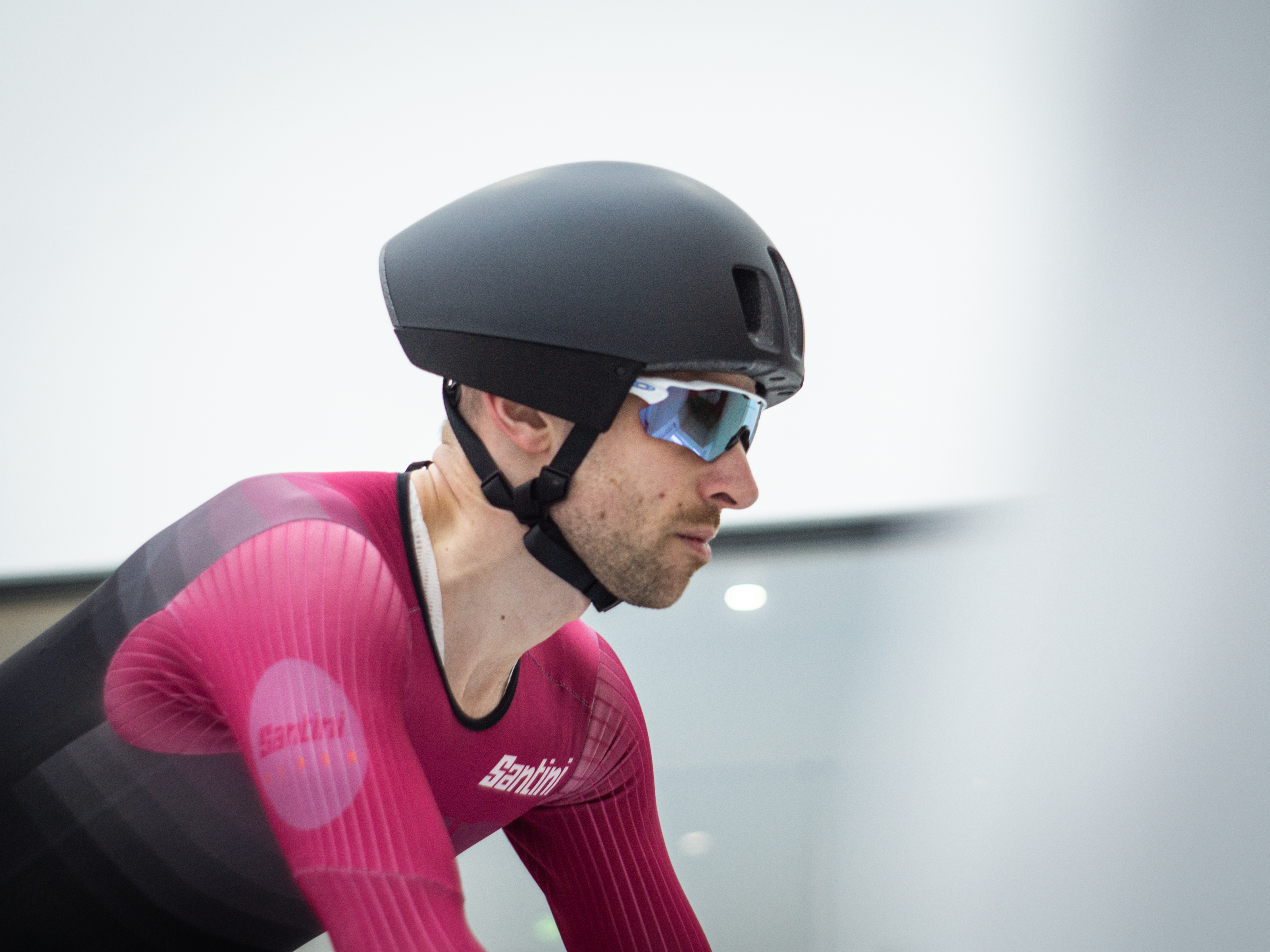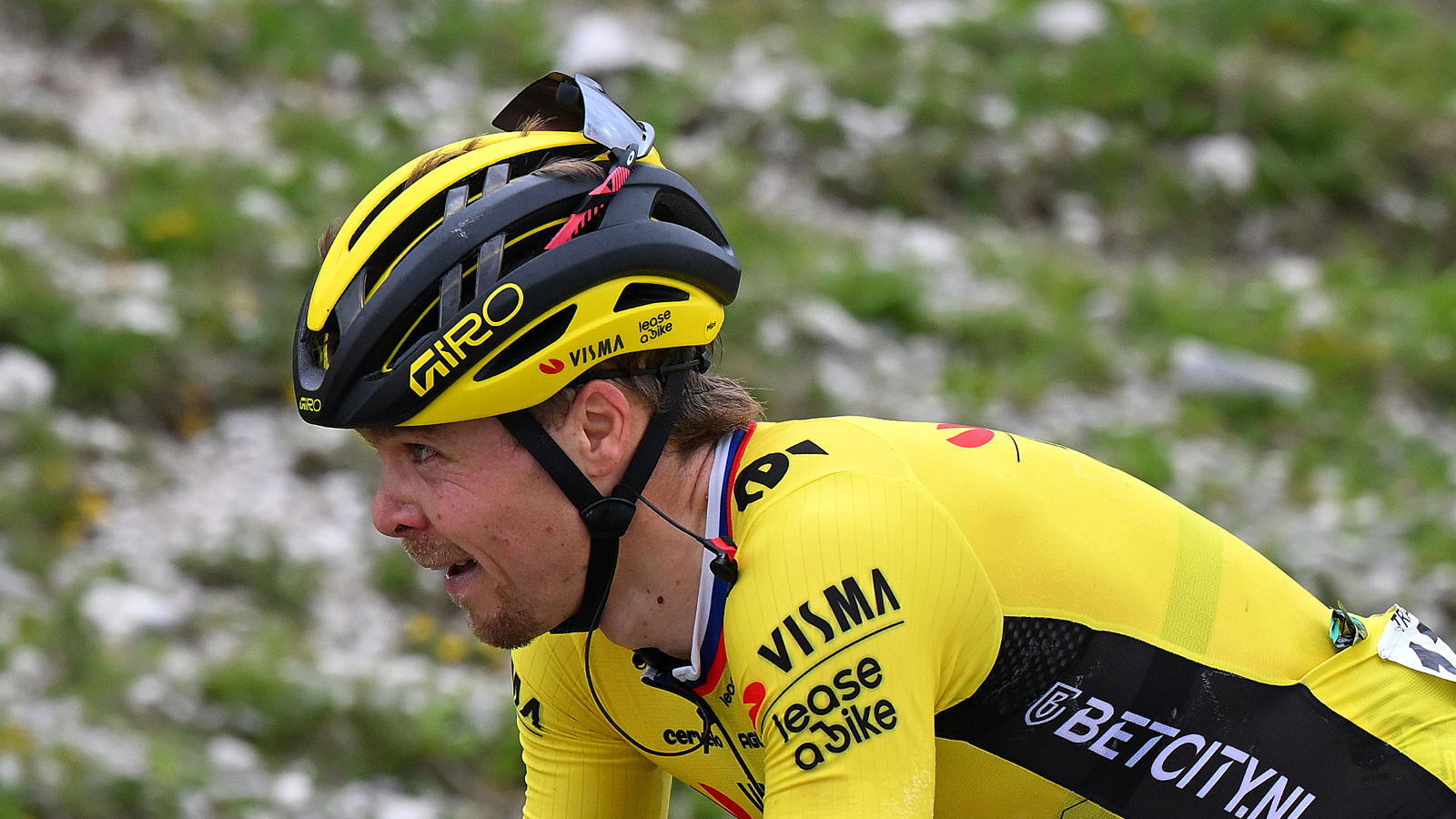The wild new aero helmet, spotted atop the heads of Alison Jackson, Ben Healy and their respective EF teammates, is officially the fastest aero road helmet on the market, according to an in-depth, industry-wide, independent wind tunnel test.
The POC Procen Air, perhaps better described as a time trial helmet adapted for the road rather than the aero road helmet style we’ve come to know, has already taken scalps in the WorldTour, but it can now claim an altogether different victory, one that is arguably no less valuable.
On the 20th April, Cyclingnews review expert, Tom Wieckowski, and I took 24 different road bike helmets from 18 different brands to the wind tunnel at the Silverstone Sports Engineering Hub.
In a bid to create the most complete test possible, we chose the range-topping aero helmet from every brand we could think of. We included all the helmets that amateur riders and racers might consider buying, and given Cyclingnews’ connection to the world of pro racing, we also wanted to include each brand represented in the WorldTour.

The final list included everything from Abus to Uvex, including the S-Works Evade III, the Trek Ballista, the Sweet Protection Tucker 2VI, the older POC Ventral, the Met Manta worn by Tadej Pogačar, the Abus Gamechanger 2.0, the budget-friendly Van Rysel FCR, an even-more budget friendly helmet that costs just £20, and even a helmet that doesn’t launch until later this year.
After over four hours of back-to-back (to-back) testing, the Procen Air – complete with visor – was crowned fastest.

To see the full results, you can head to our aero helmets wind tunnel tested feature. You’ll need to be a Cyclingnews subscriber – it was your subscription fees that helped to pay for this very test – but when you’re in, you’ll have full access to the raw CdA data, our test protocol, the caveats, and all of the things we learned on the day.
The latest race content, interviews, features, reviews and expert buying guides, direct to your inbox!
We’ve also calculated the difference in watts between each helmet at 30km/h, 40km/h and 50km/h. We then reversed those calculations to solve for speed at 250, 350 and 450 watts, and from that we worked out how many seconds that would save you over a 40km time trial. For instance, the difference between the Procen Air and the slowest on test is 12.8 watts at 40km/h. Bump that speed to 50km/h and the wattage difference grows to a huge 24.9 watts.
We did some fun calculations too, such as how many metres Tim Merlier might gain in a 200m sprint by wearing the aero Evade III instead of the Prevail III from sponsor Specialized; and how many watts Groupama FDJ gained/lost when swapping from Giro to Julbo.

Interestingly, we also found that the Procen Air is 1.3 watts faster when wearing the visor than when you pair it with sunglasses.
Naturally, our test was standardised to ensure accuracy, and each of the 23 helmets was tested at a wind speed of 40km/h across four different yaw angles of 0 to 15 degrees. They were all tested on the same day in a wind tunnel used by hundreds, if not thousands, of WorldTour level athletes, manufacturers and engineers.
Along with the overall winner and loser, there were plenty of surprises throughout the remaining helmets. For example, there is very little correlation between how much you spend and how fast your helmet will be.
As expected, we found that as a group, the helmets described as ‘aero’ by their manufacturer tended to be faster than those that were more aimed at being ventilated, but the differences were much closer than we expected, and there were plenty of examples of so-called aero helmets scoring worse than other so-called vented helmets.

We also found that you could easily undo your aero gains unwittingly, such as with your straps, and with sunglasses placement, but the exact details of those tests are yet to come. Watch this space.
Until then, subscribe to Cyclingnews – just £1 for your first month – and go get all nerdy with the numbers.

